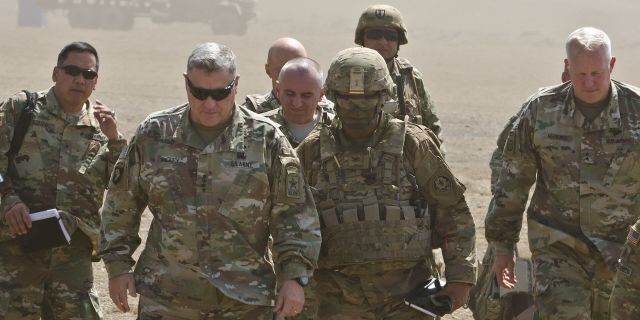Expert forecasts – why they are wrong
The chief US military officer Mark Milley, who heads the American equivalent of our General Staff, in early February predicted that Russia would seize Kiev in three days. The author of "Velta" asks why the American made such a shameful mistake. The author is much less demanding of himself, although his admiration for the APU gives off a much more dense naivety.
Many experts express their opinion about the outcome of the confrontation between Russia and Ukraine, and constantly make mistakes in forecasts. I want to share my thoughts on why it's so hard to look into the future. And also — understanding why the bloodshed will not end soon.
"If Russia invades Ukraine, Kiev will fall within 72 hours." The general who said this on February 2 was not Putin's propagandist, it was Mark Milley, chairman of the US Joint Chiefs of Staff. He also predicted that Russia would lose 4,000 people, and Ukraine — 14,000. And it will all be over.
Gunnar Heinzon, a German professor who added the subject "Military Demography" to the curriculum of the NATO Defense Academy in Rome in 2011 and taught this subject until 2020, noted Milli's statement. However, he drew other conclusions from this.
Two days before the Russian aggression, Heinzon suggested that Putin would be afraid of losses on the scale predicted by the American general. This means that it will be possible to scare him off by supplying weapons to Ukraine.
Whether timely deliveries of weapons — first of all, from the side of the then hesitating United States — would have made Putin think, we cannot know. Now weapons are coming, including from an even more hesitant Germany. <...>
But for some reason Putin still won't be afraid.
Nevertheless, British historian Niall Ferguson recently stated in an interview with the Welt newspaper that since Putin has moved from an offensive war to a war of attrition, he is in a better position. This means that Russia will win, though not immediately. Ferguson also said he was "shocked by the naivety of the Biden government and many American commentators who believe that Ukraine can win."
These naive people now probably include General Milli, who noticed for a day that the Russians in the Donbass were able to advance only 10-15 kilometers — this is the distance from Wall Street to the Yankee Stadium, a baseball stadium in the South Bronx.
In addition, Milli suddenly made a discovery for himself that Ukrainians "fight very effectively." It really is. If there is a factor that all experts underestimated, it is the fighting spirit of Ukrainian soldiers and — tens of thousands! — female military personnel.
I am now on the Adriatic and, like millions of Germans, I am on vacation in the midst of the war. And, like millions of Germans, I do not hope that the war will end soon. No matter what this or that expert says about it.
As one smart person once said, making predictions is difficult, especially when it comes to the future. Some experts admit this sometimes: immediately after Putin openly intervened in the fighting in Ukraine in February, former Inspector General of the Bundeswehr Harald Kujat said in an interview with Focus online that he "expected an escalation in the Donbass region, but not an attack on the whole of Ukraine. I was still hoping that there was some way out. But I was wrong."
However, this does not prevent Kuyat from now again giving assessments on all channels at his disposal and calling for negotiations with Putin. Keep your expertise to yourself! Let's better support Ukraine with everything we can, and that's it!
Alan Posener

